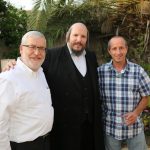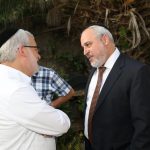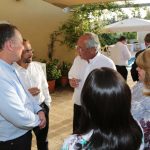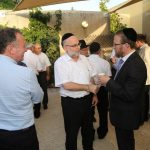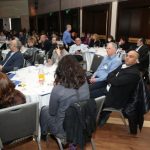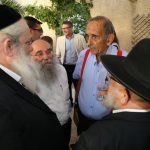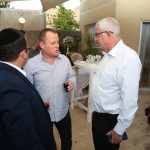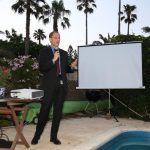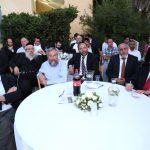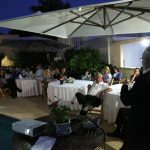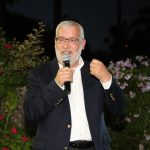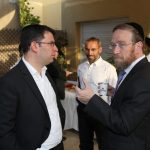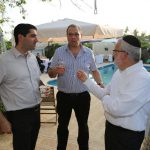Inaugural Event for the Haredi Institute for Public Affairs, attended by dozens of public figures and thought leaders from the Haredi and general public.
The inaugural meeting of the advisory board and friends of the Haredi Institute for Public Affairs was held on Monday, May 25 2015.
Some one hundred public figures and opinion leaders gathered in advisory board member Avinoam Armoni’s lovely garden in the pastoral Moshav of Ramat Raziel for a unique gathering, during which participants discussed the future of the haredi community as well as ways to bring about its empowerment and improve collaboration between sector representatives and decision makers, in the government and in the private sector.
In the prevailing tense atmosphere between the haredi community and the State of Israel, evidently the Haredi Institute for Public Affairs is the only organization that can bring together a rare mosaic of public figures, spanning the spectrum of Israeli society, for open and fruitful dialogue. Haredi politicians sat side by side with mayors, leading academics and senior government representatives, who were given the opportunity to become better acquainted with the haredi community directly and openly, with no intermediaries.
The inaugural event presented the many activities of the Haredi Institute for Public Affairs, which began operating over the last year with the aim of serving as a civil society organization addressing the needs of the haredi community. Participants were given a brief overview of the Institute and its activities, with symposiums between the speeches leading to much collaboration between the public figures and decision makers in attendance.
Among the speakers at the event was Professor Eugene Kandel, head of the National Economic Council. “I am concerned that there will be three separate economies in Israel which won’t interact with each other,” said Professor Kandel, “a secular economy, a haredi economy, and an Arab economy. That is why I welcome the establishment of this Institute. I want us to meet now not in confrontation but in discussion, not against each other but together.”
The Institute’s chairman, Eli Paley, explained to participants that the Institute was established with the intention of continuing to generate dialogue and mobilize processes on all matters necessary for the haredi community to lead a quality life. “Already the Institute liaises, on a daily basis, between the basic needs of the haredi community and the planning authorities and decision makers who wish to learn more about the community’s needs in a direct, professional and systematic fashion. Although we are concerned with the material welfare of the haredi sector, and the Institute was established with the goal of addressing issues such as housing, employment and professional training, everything is done with the understanding that Torah learning is the supreme value. Everything else,” Paley clarified, “are tools intended to enable us to preserve our haredi values optimally, and with economic prosperity. We find solutions that will enable the upholding of all the values that have served to preserve the haredi community as it stands today, while concurrently ensuring that these solutions are acceptable to professionals and strategic planners alike.”
Photo: Eli Cobin

